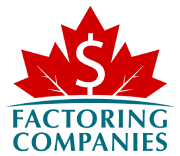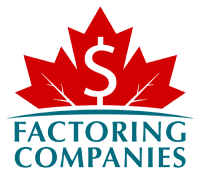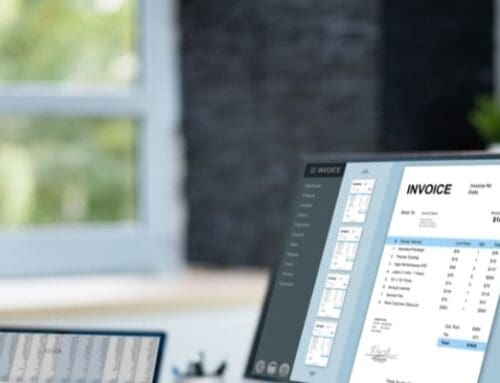
Did you know that your business has multiple credit scores? Or that a shift of just a few points can keep thousands of dollars in your pocket? It’s true, and this is only the beginning of what earning and maintaining strong credit can do for you. On this page, you’ll learn how scores work, the elements that influence your score, and how savvy leaders are building business credit with factoring today.
Why Good Business Credit Matters
Before we cover credit enhancement through factoring, let’s quickly review why maintaining a good credit score matters.
You’re More Likely to Qualify for Finance and Insurance Services
Lenders, insurance companies, landlords, suppliers, and customers can all view your score. At a basic level, a good score assures that your business is stable and is likely to be around in the future.
You’re More Likely to Secure Better Rates
Your credit score is a major factor in the terms that finance and insurance companies offer. For instance, a bank might approve applications for businesses with excellent and fair credit, but the APR will be worlds apart. Whereas the business with good credit may receive an offer for six percent interest, the one with fair credit might be charged 12 percent interest. Enhancing creditworthiness in business can help you get higher limits, too.
You’ll Be More Profitable

Let’s say that the businesses with good and fair credit both qualify for a $20,000 loan that’s paid off in five years. The business with good credit and the six percent APR will pay $3,199 in interest over the duration of the loan. The one with fair credit and a 12 percent APR will pay $6,693 in interest. That’s a $3,494 difference on just this one loan. When you consider all the fees a business pays that hinge on credit, improving your business credit score can make a huge difference in profitability.
Your Business Will Grow Stronger
Having access to capital at fair rates makes it easier to budget, accept more work, expand your business, and more.
Types of Business Credit Scores
Business credit scores work differently than personal credit scores, though some of the bureaus are the same. You’ll want to contact each one for a report so you can find out where you stand and ensure your reports are accurate.
Each bureau provides multiple scores that may be used for different situations, so it’s essential to review all your scores and take steps to improve them if they’re low. Details on each bureau and the scores they provide are highlighted below.
Dun & Bradstreet Business Credit Scores
One name you might not know unless you’re a seasoned business owner is Dun & Bradstreet (D&B). The company deals exclusively with business credit, and you can have three scores through them: PAYDEX, failure, and delinquency.
Paydex Score
Your Paydex Score measures how likely you are to make a late payment. Scores range from one to 100. A score of 49 or less signifies a high risk for late payments, while 50 to 79 indicates moderate risk. A score of 80 or above indicates low risk.
However, it isn’t easy to get a low-risk score. A business can only score above 80 if it makes payments early and can only score above 90 if it pays balances prior to the date of invoice, D&B reports.
PAYDEX scores are unique because you must file for a DUNS number with D&B in order to be scored.
Failure Score
D&B Failure Scores rate the likelihood of a business filing for bankruptcy or closing within the next 12 months. They range from 1,001 to 1,875, with lower scores indicating a high risk for bankruptcy and higher scores indicating a lower risk.
Delinquency Score
D&B Delinquency Scores rate the risk of a business going bankrupt or making a payment that’s 91 or more days overdue. Scores range from one to five, with lower scores indicating less risk.
Experian Business Credit Scores
Many business owners are familiar with Experian because the company is in the consumer market, too. Experian rates businesses with two different systems: Business Credit Score and Financial Stability Risk Rating.
Business Credit Score
Experian Business Credit Scores are similar to Paydex Scores. Businesses are rated from one to 100, and higher scores indicate less risk of serious payment delinquencies.
Financial Stability Risk Rating
Experian Stability Risk Ratings are similar to D&B Delinquency Scores. Ratings range from one to five, with lower scores indicating less risk of bankruptcy or default in the next 12 months.
Equifax Business Credit Scores
Because Equifax operates in the consumer space, too, many business owners will already be familiar with the bureau. There are three business credit scores through Equifax: Payment Index, Credit Risk, and Business Failure.
Payment Index Score
The Equifax Payment Index Score is similar to D&B’s Paydex Score and Experian’s Business Credit Score. Businesses are rated from zero to 100, with higher scores indicating the business is more likely to pay on time.
Credit Risk Score
A Credit Risk Score from Equifax indicates how likely a business is to become severely delinquent on payments. Scores typically range from 101 to 992, with higher scores indicating lower risk. However, a business with a bankruptcy will have a score of zero.
Business Failure Score
The Equifax Business Failure Score is similar to D&B’s. A lower score indicates the business is more likely to fail within the next 12 months. Scores typically range from 1,000 to 1,880. However, a business may have a zero if it has filed for bankruptcy.
How Your Business Credit Score is Calculated
Each credit bureau uses a proprietary scoring algorithm that uses data provided by your business, public records, and details supplied by entities that have done business with you. A few things that can influence your score include:
- Your industry/ risk of failure in your industry.
- The age of your business.
- The size of your business.
- The age of your oldest financial account.
- Your credit utilization.
- Established trade lines/ vendors reporting payments.
How Invoice Factoring Works
At this stage, you should understand how scores are calculated and why credit score management for businesses is essential. Next, we’ll explore invoice factoring and how factoring services and credit are intertwined.
Invoice factoring is an alternative business funding solution and cash flow acceleration tool. Instead of borrowing money, you sell your unpaid B2B invoice to a factoring company at a discount. The factoring company pays you up to 95 percent of the invoice’s value right away, then sends you the remaining balance minus a small factoring fee when your customer pays.
Factoring companies offer different programs that allow you to factor as many or as few invoices as you like. You can factor just a single invoice when you’re in a tight spot, factor frequently to improve cash flow as your business grows, or factor all your invoices for more stable and predictable cash flow.
How Building Business Credit with Factoring Works

Factoring can play a crucial role in business credit score management because it offers many unique benefits.
You Can Qualify Even if You Don’t Have Good Credit
Most businesses with B2B invoices qualify for factoring. This is because the factor cares more about the creditworthiness of your customers than it does about your credit score since they’re paying the invoices. That means you can leverage factoring and start building stronger credit even if you don’t have good credit to begin with.
Your Business Does Not Accrue Debt
Many businesses view factoring as a credit solution because it provides quick access to capital. However, it’s debt-free funding for your business because your clients take care of the balance when they pay their bills. This allows many businesses to avoid taking out loans, using credit cards, and accruing debt, thus keeping credit utilization lower and boosting credit scores.
You Can Pay Off Existing Debts Quicker
Small business debt has risen 15 percent year-on-year per Equifax Canada. A typical small business now owes close to $40,000. This, of course, impacts credit utilization, which influences credit scores.
How you use your factoring cash is ultimately up to you, though many businesses put the cash toward debt payments. It helps reduce credit utilization and can also help get balances paid off quicker to reduce interest payments.
You Can Stay on Top of Vendor Payments
Timely vendor payments are a significant component of credit scores. Again, you can’t even get a Paydex score over 80 unless you pay early. Factoring can provide you with cash to pay vendors quickly to boost your score.
Start Building Business Credit with Invoice Factoring
Invoice factoring can give your business the edge to start building credit and grow. However, much of your experience depends on the factoring company you choose. We welcome the opportunity to match you with a factoring company that understands your industry, offers competitive rates, and has a reputation for delivering quality service. To learn more or get started, request a complimentary rate quote.

About Factoring Companies Canada
Related Articles
Get an instant factoring estimate
Factoring results estimation is based on the total dollar value of your invoices.
The actual rates may differ.
CLAIM YOUR FREE FACTORING QUOTE TODAY!
PREFER TO TALK?
You can reach us at
1-866-477-1778
Get an instant factoring estimate
Factoring results estimation is based on the total dollar value of your invoices.
The actual rates may differ.
CLAIM YOUR FREE FACTORING QUOTE TODAY!
PREFER TO TALK? You can reach us at 1-866-477-1778









